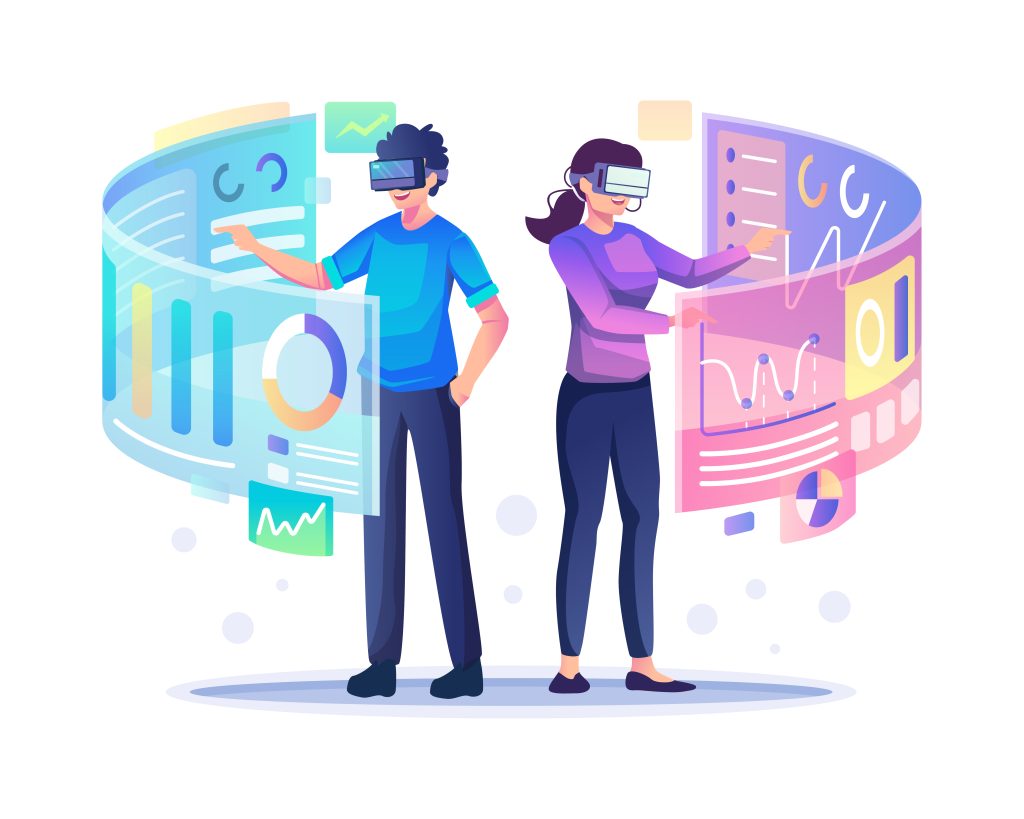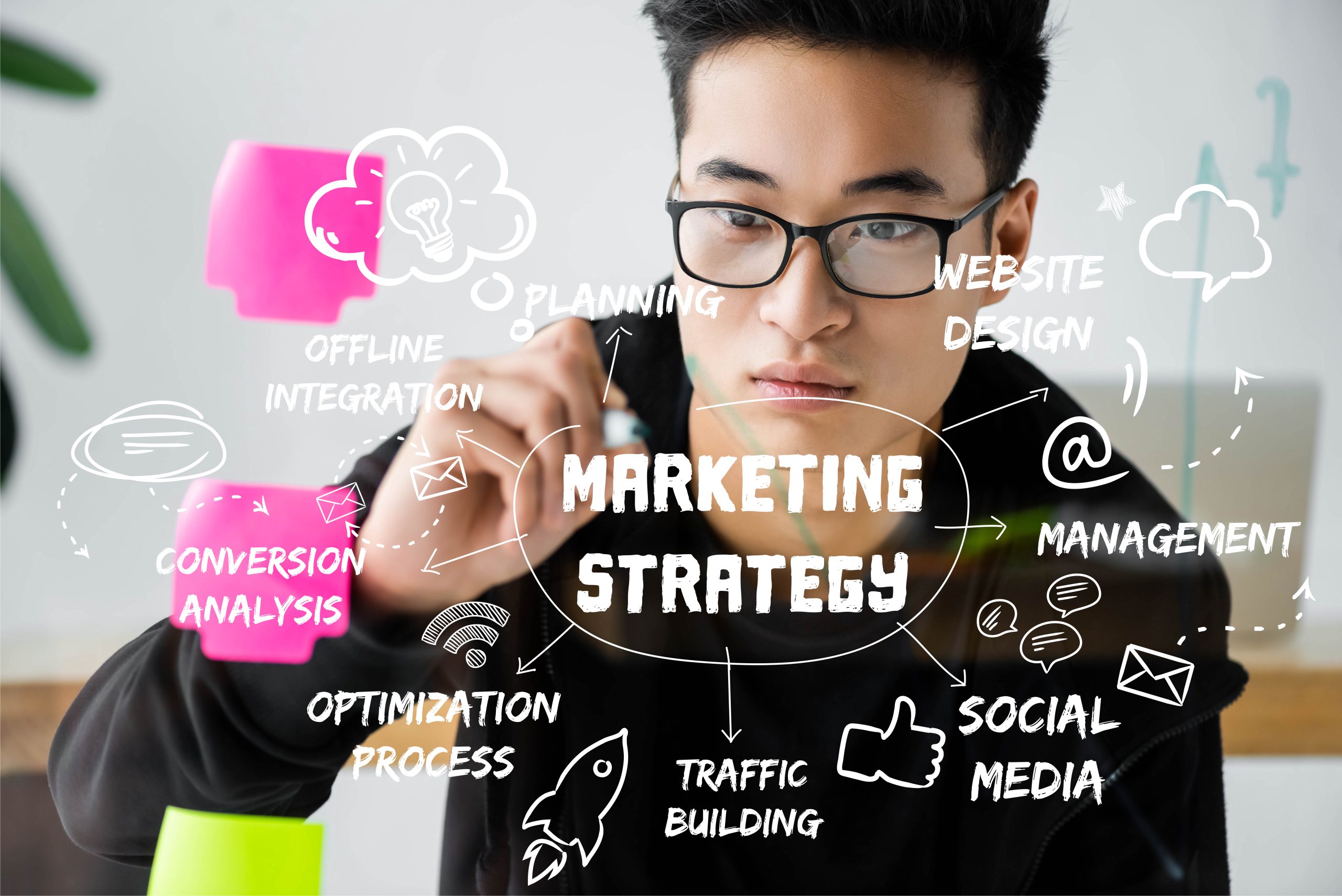Introduction
Digital marketing is constantly evolving, and businesses that stay ahead of the curve will have a competitive edge. As we approach 2025, new technologies, consumer behaviors, and platform updates are shaping the future of online marketing.
In this guide, we’ll explore the top digital marketing trends and strategies businesses should focus on to stay relevant and maximize their success in the coming year.
1. AI-Powered Marketing and Automation
Artificial Intelligence (AI) is revolutionizing how businesses engage with their audience and optimize campaigns.
1.1 Personalization Through AI
- AI-driven tools analyze user behavior to deliver hyper-personalized content.
- Dynamic website experiences and email marketing campaigns adapt to individual preferences.
1.2 Chatbots and Conversational Marketing
- AI-powered chatbots enhance customer support by providing instant responses.
- Conversational marketing through messaging apps improves user engagement and conversion rates.
1.3 Automated Ad Targeting and Bidding
- AI optimizes ad placements based on real-time data for better ROI.
- Predictive analytics improve audience targeting and campaign performance.

2. The Rise of Voice Search and Smart Assistants
Voice search is becoming a primary way people search for information, making voice-optimized content crucial.
2.1 Optimizing for Voice Search SEO
- Use natural language and long-tail keywords that match spoken queries.
- Structure content with FAQ-style formats to answer common voice search queries.
2.2 Local SEO for Voice Search
- Optimize Google My Business listings to capture local voice search traffic.
- Ensure business details (address, phone, hours) are accurate for voice-based searches.
2.3 Smart Assistants and E-Commerce Integration
- Brands are leveraging Amazon Alexa, Google Assistant, and Siri for shopping experiences.
- Voice commerce is projected to grow, making it essential for businesses to optimize product listings.
3. The Evolution of Social Media Marketing
Social media platforms continue to evolve, offering new opportunities for businesses to connect with their audience.
3.1 Short-Form Video Dominance
- Platforms like TikTok, Instagram Reels, and YouTube Shorts are leading engagement.
- Brands must focus on storytelling and authentic content to capture attention.
3.2 Social Commerce Growth
- Facebook, Instagram, and Pinterest are integrating more shopping features.
- Shoppable posts and live-stream selling are becoming standard marketing tactics.
3.3 The Shift to Private Communities and Groups
- Consumers prefer engaging with brands in closed communities rather than public feeds.
- Facebook Groups, Discord servers, and LinkedIn communities drive deeper brand engagement.
4. Privacy-First Marketing and Data Protection
As privacy regulations tighten, marketers must adapt their strategies to comply with new rules.
4.1 The End of Third-Party Cookies
- Google plans to phase out third-party cookies, changing how ads are targeted.
- Businesses should invest in first-party data collection through email sign-ups and loyalty programs.
4.2 Ethical Data Collection
- Transparency in data usage will be critical for customer trust.
- Marketers should clearly communicate how user data is collected and utilized.
4.3 AI-Driven Analytics Without Tracking Users
- AI is enabling businesses to analyze customer behavior without invasive tracking.
- Predictive analytics tools are becoming essential for marketing insights.
5. Influencer and Creator-Led Marketing
Consumers trust peer recommendations over traditional advertising, making influencer marketing a dominant force.
5.1 Micro-Influencers Drive Engagement
- Smaller influencers with niche audiences have higher engagement rates than celebrities.
- Businesses should collaborate with relevant micro-influencers to build credibility.
5.2 User-Generated Content (UGC) Boosts Trust
- Encouraging customers to create content around a brand builds authenticity.
- UGC campaigns enhance word-of-mouth marketing and brand loyalty.
5.3 Brand Partnerships with Content Creators
- Long-term collaborations with content creators are replacing one-time sponsorships.
- Brands must co-create content with influencers for better storytelling.
6. The Expansion of Augmented Reality (AR) and Virtual Reality (VR) Marketing
Immersive experiences are redefining customer engagement in the digital world.
6.1 AR in E-Commerce and Advertising
- AR-powered try-on experiences are enhancing online shopping (e.g., virtual fitting rooms).
- Interactive AR ads increase engagement and conversions.
6.2 VR Experiences for Branding
- Brands are using VR to create immersive brand storytelling experiences.
- Virtual showrooms and events provide new ways for customers to interact with products.
6.3 The Role of the Metaverse in Marketing
- Virtual worlds are offering new opportunities for brand visibility.
- Companies are investing in metaverse experiences to engage younger audiences.

7. Data-Driven Marketing and Predictive Analytics
Advanced data analytics help brands make informed marketing decisions.
7.1 AI-Powered Marketing Insights
- AI tools analyze past campaign performance to predict future trends.
- Businesses can make data-driven decisions to optimize strategies.
7.2 Real-Time Customer Data Utilization
- Marketers are leveraging real-time data to personalize offers and experiences.
- Automated systems adjust marketing campaigns based on real-time performance metrics.
7.3 Attribution Modeling for Better ROI Measurement
- Multi-touch attribution models provide a clearer picture of what drives conversions.
- Brands must refine their tracking methods to measure success more accurately.
Conclusion
The future of digital marketing is being shaped by AI, voice search, privacy concerns, and evolving social media trends. Businesses that embrace new technologies, personalize experiences, and focus on ethical data collection will thrive in 2025.
By staying ahead of these trends, companies can build stronger connections with their audience and drive meaningful business growth. Now is the time to start implementing these strategies to future-proof your digital marketing efforts!





